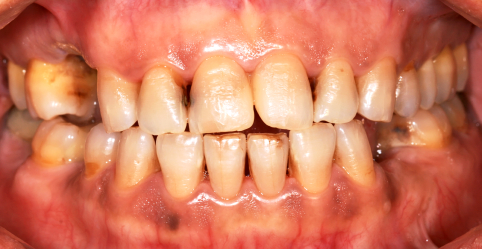We all know the negative side effects of smoking on our health, most particularly that it can lead to lung cancer. But seriously, how many people in all our years have we actually personally come across who have died of lung cancer from smoking? Sure we have read the studies, know the numbers, and maybe even know a friend who knew someone who died of lung cancer. It doesn’t affect everyone, and since you’ve been smoking for a considerable time of your life and so far seem to be fine, there’s not really any real reason to worry, right? Wrong. Apart from lung cancer – one of the ultimate ends for smokers is a more crucial, and daily-growing problem that’s developing in your mouth, and you probably aren’t really that aware of it either! So how exactly does smoking affect your oral health?
Some of the problems related to smoking or chewing tobacco include increased risk of periodontal disease, stained teeth, chronic bad breath, and buildup of plaque. The most serious problem related to smoking is lung cancer, as well cancer of the mouth (especially if you also consume alcohol while smoking), pancreas, cervix, kidney, liver, lip, throat, bladder, stomach and blood (leukemia), respiratory disease, coronary heart disease, and diabetes. Not enough to keep you from smoking? Read on.
Reasons to Quit Smoking
Oral Diseases and danger to healthy gums
It’s pretty easy to understand why smoking can be the primary cause of so many disorders related to the human condition: it’s the primary opening in your body via which you control what goes in and out – good and bad. Everything that enters our body and our bloodstream enters through the mouth (unless you’re injecting) and passes through our bloodstream to various parts of the body, showing its effect on health in distinctive ways. When you smoke a cigarette, you give the smoke access to all parts of your body, having the most effect on your oral health. You put yourself at risk of developing periodontal disease – a group of disorders that affect the gums. Smoking causes the gums to have reduced blood flow which causes gums to pull away from the teeth, lessening protection to the roots, which can cause tooth decay. Furthermore, the exposed roots of your teeth become sensitive to hold and cold foods and buildup of bacteria can create localized infections.
As the gums continue to deteriorate, bacterial growth leads to bad breath, cavities, mouth sores, infections and the rampant plaque growth. Plaque starts to develop, and if untreated, can turn into tarter, which can cause additional pain and bleeding.
It gets better: Smoking can cause bone loss in the jaw, inflammation of the salivary glands and delayed healing from oral and other surgeries. Not only can smoking increase the chances of developing gum disease and make treatment more difficult, the treatment is even less likely to succeed – smoking hinders healing in the mouth.
Conclusion
So now that you have become a little bit more familiar with the abundant array of medical problems you can face from smoking, it might be a good idea to start thinking of quitting. Of course, because nicotine is highly addictive, it can be difficult to go cold turkey. Nicotine patches and gum are a good place to start, followed by behavioral therapy to help you sustain the modification in your daily smoking routine and help you abstain longer, even permanently!
